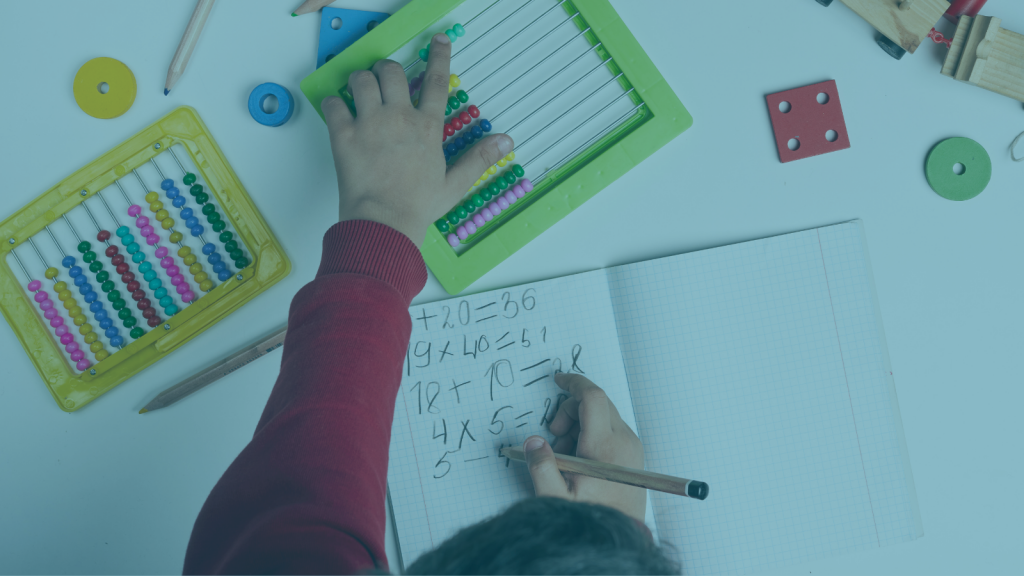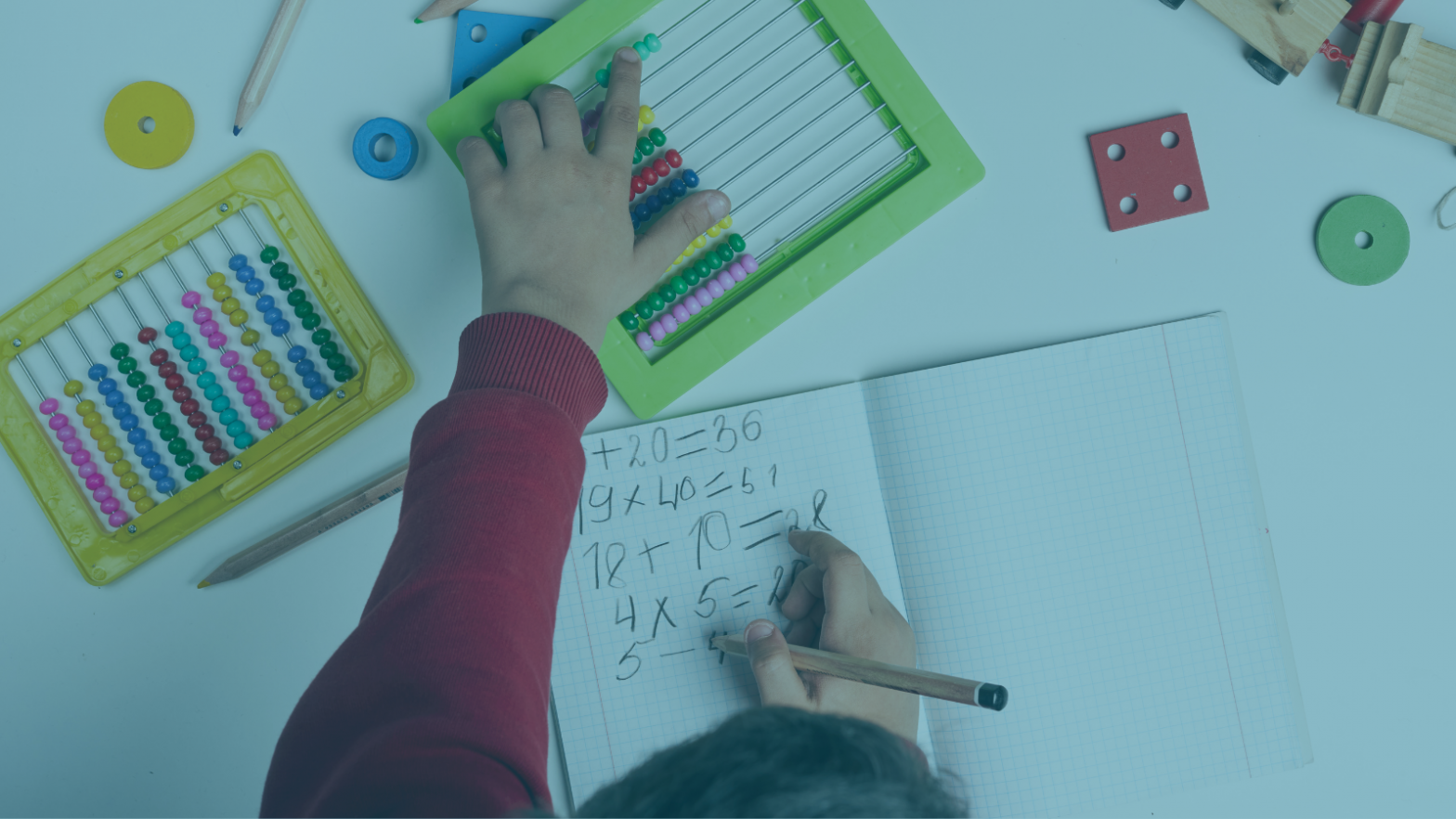
What is a Math LD or Dyscalculia?
How often do you hear adults say: “I always struggled with math in school,” or even worse, “I’m just not a math person,” and accept that it will always be hard for somebody to do things such as keeping track of their finances and other important math-related activities?
Were you one of those kids struggling and giving up on math? You may have a math learning disability or dyscalculia yourself, it’s not something that only affects children.
All involved, from parents, to educators, and certainly the students themselves would love to prevent or minimize this ongoing struggle in math. Recent research shows that learners can become confident and successful in math, and even love doing it, with an individualized approach, that’s preferably started early. This is much like how children with dyslexia benefit from specialized dyslexia instruction using sequential, structured, multisensory lessons and can eventually become good readers and even love to read!
What Does the Word Dyscalculia Mean?
The word dyscalculia has Greek and Latin roots: dys (the Greek part) means badly and calculia (the Latin part) comes from calculare: making calculations, so dyscalculia is ‘badly calculating’ or having trouble with making calculations. This is similar to the term ‘dyslexia’ that can be translated as ‘badly reading.’
Dyscalculia is a specific learning disability with an impairment in mathematics, which can affect calculations, problem solving, or both. It impacts all sorts of numerical tasks and it is inborn, meaning you are born with it. Although there is not yet a generally accepted definition of dyscalculia, the DSM-5 mentions difficulties with number sense, memorization of basic math facts, and accurate and fluent calculation. An estimated 4-7% of students have dyscalculia, so a teacher can expect to have one or two students with this per class.
What are Common Symptoms of Dyscalculia?
Dyscalculia in children usually involves one more more of the following:
- Counting: starting to count later and less accurately than other children their age
- Mentally connecting a number with a size or quantity (number sense)
- Effortlessly knowing how many dots are on a dice or dominoes without counting
- Estimating and comparing larger quantities
- Memorizing sequences such as the order of daily activities or days of the week
- Doing basic math: memorizing and applying math facts for addition or subtraction
- Learning multiplication tables: learning it one day and completely forgetting it the next day
- Difficulty choosing the calculation for the numbers in a word problem
- Needing more time for math work and making mistakes that are far off
- Learning to tell time using an analog clock
- Math anxiety is very common
Dyscalculia in adults often involves one or more of the following issues:
- Being uncomfortable with all sorts of number-related activities
- Making mistakes in copying and memorizing phone numbers, logins, and dates
- Having trouble with everyday calculations like estimating a shopping total or change given, the tip in a restaurant or sharing the bill, calculating fractions when you need to cook for more people than the recipe is intended for
- Managing finances in general: a bank account, a checkbook, keeping track of credit card payments and understanding the annual percentage rate (APR)
- Understanding directions and using maps and graphs, calculating distance and speed
- Keeping track of time, missing appointments and deadlines
What Can We Do About It?
The brain of a person with dyscalculia is wired slightly differently, and mathematical stimulus is processed differently. This can be pictured with functional MRI: when a child or adult with dyscalculia does a math problem, the areas in the brain that are best equipped for numerical tasks are mostly bypassed and other less efficient areas are used instead. This can take more time and lead to more mistakes.
Luckily, we also know that the brain can be trained to develop that valuable connection with numbers, sizes, and patterns. Starting this intervention as early as possible is best. Because dyscalculia is not yet widely known, currently many students go undetected for years, losing their self-confidence along the way. To know which students can benefit from intervention we should do school wide screening to see who is at risk and arrange a more in-depth assessment of number sense and math skills for those who score low on the screening.
The assessment should not be seen as just giving out a label, but its goal is providing suggestions for accommodations and remediations that are linked to the strengths and weaknesses of that specific student or adult. It is the start of an effective research-based intervention, which in most cases will involve structured, sequential, multisensory instruction, preferably one-on-one or in a small group setting. Using hands-on tools and visual representations can illustrate an otherwise abstract numerical problem and help make sense of it.
Many students have already benefited from such interventions and have made considerable progress both in math and in general well-being. Don’t delay when you expect that you or a loved one can benefit from such extra help with math.
For Further Reading:
Dyscalculia: Causes, Consequences, and Creative Solutions
Discovering Dyscalculia with Laura Jackson

Dr. Anneke Schreuder is a Dutch pediatrician and neonatologist, with a particular interest in the field of developmental epidemiology.
Seeing many students struggling in math as well as in reading, she decided to return to her area of expertise and passion, math. Awareness, communication, research, and remediation of Dyscalculia are her mission. In 2010, she started Dyscalculia Services to provide assessments, in-person, and online tutoring for children and adults, and to assist parents in supporting their children’s learning. In her practice, Dr. Schreuder follows and implements the latest research on the subject of learning disabilities and best practices for intervention.
Dr. Schreuder is a dedicated and active LDA Texas Board Member. She is responsible as the LDATX Outreach Community Coordinator for answering questions asked by individuals seeking guidance for learning disability resources.
Dr. Schreuder is a frequent speaker on Dyscalculia on podcasts and webinars, a consultant to various local schools, and has developed a series of online courses.



